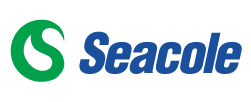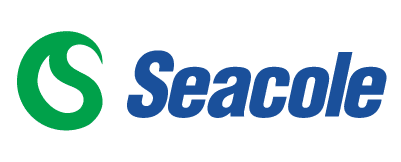Contract manufacturing, custom blending, contract blending, chemical toll blending, private labeling . . . don’t be confused by the jargon. The Seacole team is here to help you make sense of it all and help you find the right contract manufacturing partner for your project.
Understanding Contract Manufacturing Terms
What Is Contract Manufacturing?
Generally, contract manufacturing is a specialty service where one company hires another to produce a product. At Seacole, companies with complex chemical formulations hire us to handle every part of the chemical manufacturing process, from mixing and blending to packaging and delivery.
Contract manufacturing is often a safer and more cost-effective method of blending chemicals than investing in the resources, equipment, and human capital to produce specialty chemicals in-house. Seacole starts by consulting with companies to review formulas and needs, and will design manufacturing plans to meet specific requirements and budgets.
What Is Custom Blending?
Custom blending is a chemical-specific term for contract manufacturing. It refers to hiring a chemical manufacturer to custom blend chemicals to create an entirely new product with its own unique properties.
Like contract manufacturing, custom blending with a third party is often safer and more cost-effective than formulating new products in-house. Companies may choose custom blending for a new automotive or aviation formulation or industrial cleaning product.
What Is Contract Blending?
Contract blending is another term for custom blending. In the chemical production industry, contract manufacturing, custom blending, and contract blending are used interchangeably.
What Is Chemical Toll Blending?
Chemical toll blending is similar to contract blending. The major difference is that the company provides the materials and packaging, not the chemical manufacturer. Essentially, the company is saying, “Here is everything you need to make my product. Now, please blend it and package it for me.”
Toll blending may be a good option for companies that maintain inventories of chemicals but do not have the capabilities for mixing and blending them. Seacole can partner with these types of companies to complete the blending, packaging, and shipping for their new products.
What Is Private Labeling?
In the chemical industry, private labeling is when a company uses a manufacturer’s existing formulation and pays that manufacturer to label and package the formulation with the company’s branding. This can be an economical way to offer new products to customers without investing in the research and development of a new product.
At Seacole, we know private labeling and other contract manufacturing projects are trade secrets, so our process starts with a signed NDA to protect intellectual property. Our technical team is experienced working within NDAs and developing products to customers’ exact specifications. We keep our customers informed every step of the way to ensure the finished product exceeds their expectations, whether we’re shipping it to them or blind shipping it directly to their customers.
Now that you understand the basic terms, it’s time to discuss process.
Most reputable contract manufacturers use some sort of project management process. At Seacole, we use the proven Stage-Gate® process for our contract manufacturing projects.
A Closer Look at Our Stage-Gate® Process
Bringing a product from concept to market is a major investment of time, money, and resources. Without an effective process to guide it, the project can get mired in indecision, lack of resources, and ineffective leadership. We want to help you avoid these costly pitfalls. The Stage-Gate process ensures that we help you make an informed and profitable decision by bringing a new product to market.
What is Stage-Gate?
Stage-Gate is a best practice idea-to-launch process that helps us take your product from concept to market with speed and accuracy, leading to greater profitability to you. A project manager leads the team and drives the project through each stage. At the end of each stage, the project encounters a gate where the team offers its work for review, and the project manager and team leaders decide how to move the project forward.
How does Stage-Gate help me?
The Stage-Gate process ensures that we are making informed and profitable decisions for you. Not every product opportunity is worth the time and money you’ll spend developing it. The Stage-Gate process may find that your needs could be served by a current product or combination of current products. It may show that your proposed product would be too costly to put into production. Or, it may reveal that it is a good use of your resources. Seacole uses the Stage-Gate process when we are considering many new product opportunities, including contract manufacturing proposals.
Here’s the bottom line: the Stage-Gate process helps us give you a data-driven recommendation on the best solution for you. Through the process, we may decide to enthusiastically move ahead on your custom product, or we may offer an existing solution that will perform well for you while saving you the cost of investing in a new formulation.
This is the first in a series of blogs that fully explore all that Seacole has to offer companies looking for a trusted, professional, and qualified contract manufacturing provider and why you should consider choosing Seacole as your contract manufacturing partner.
We look forward to sharing more about our contract manufacturing Stage-Gate process with you. When you have an idea for a custom blending project or need expert support in sourcing a chemistry you require, reach out to the Seacole team.





